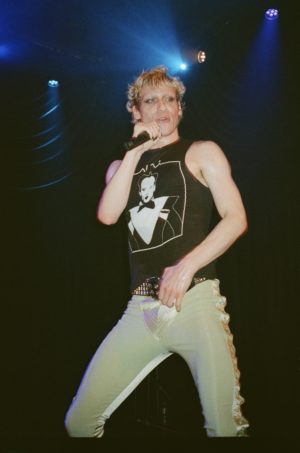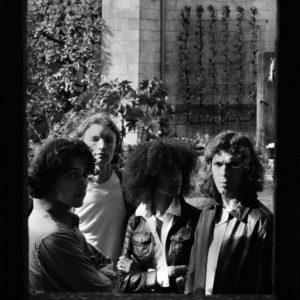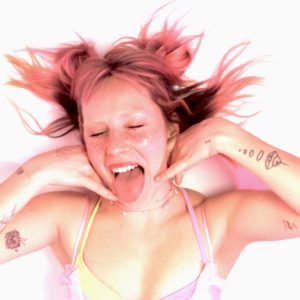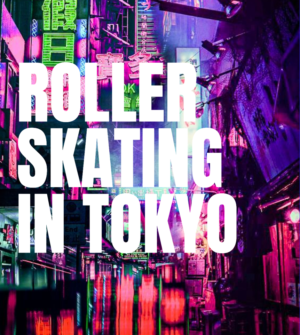Rey Pila are a spirited synth rock group from Mexico City, and their knack for free-flowing, danceable tunes makes them immediately irresistible. There’s a genuine exuberance at play in their music, even when the lyrics verge on melancholic, and in a time when irony and heady concepts over-saturate the music sphere, it’s refreshing to see a band strip down to the bare essentials and just let loose. Their upcoming album, The Future Sugar, drops next month from Cult Records, so we knew we had to get the skinny on how their shimmering sounds and energetic live show came to reside here in NYC.
I recently got to speak with frontman Diego Solórzano about the band’s creative process and future plans, and along the way we got to talking about about David Lynch, NYC vs. Mexico City, and the soccer match that landed them on the Cult Records roster. Check out the interview below, and be on the lookout for The Future Sugar this May.
Download “Aphex” for free via reypila.com and pre-order the album via Cult here
What does “future sugar” taste like? Where did the title of your sophomore full-length come from?
I don’t know what it tastes like, but I can tell you where the title came from [laughs]. Have you ever seen Wild at Heart?
No, haven’t seen it.
Well, Wild at Heart is a David Lynch movie with Nicholas Cage and Laura Dern. It’s a crazy movie, with creepy characters and a strange timeline. There’s a phrase from it that goes, “We need to talk about the future, sugar,” which relates to a lot of the lyrics on the album.
Are you guys big David Lynch fans? Do you try to incorporate cinematic ideas into your music?
We’re all into movies, and in a way it is like that. One of my favorite artists is Stanley Kubrick. There’s just a way he manages to balance pop culture, recent events, and aggressive ideas in his work in a way that lasts. We sort of aim for a similar epicness.
You’ve recorded both of your full-length albums in NYC. How, if at all, has the city affected your writing and recording process?
The first time I recorded in New York, it was just myself and producer Paul Mahajan. The studio was in Brooklyn and I remember every night I was really drunk, so I was pretty hungover recording the album. Which can make you pretty melancholic, and I wasn’t used to spending that much time with rain and snow, so it was just an album I had to get through in order to get to the next one.
But the second one, we recorded at DFA, as a band. So it was a lot different. I had a lot more fun. Recording with Chris Coady was a very interesting experience for me because I learned so much. And it turned out that we love a lot of the same bands, which I didn’t know before we went into the studio. That gave us a lot of energy – we were psyched to know he was a big fan of Depeche Mode and Kraftwerk.
So you guys split your time between NYC and Mexico City now?
We come and go a lot, but we spend a lot of time in New York. Maybe five or six months. Otherwise we’re in Mexico City. It’s a healthy balance between the two. Mexico City is beginning to grow – there are a lot of clubs and galleries, and it’s just got a particular vibe. Which I guess New York used to have in the ’80s, when you’d walk around and feel like you’re about to get mugged or stabbed [laughs]. But cities have to change, and NYC is still awesome – still blows your mind every time you’re there.
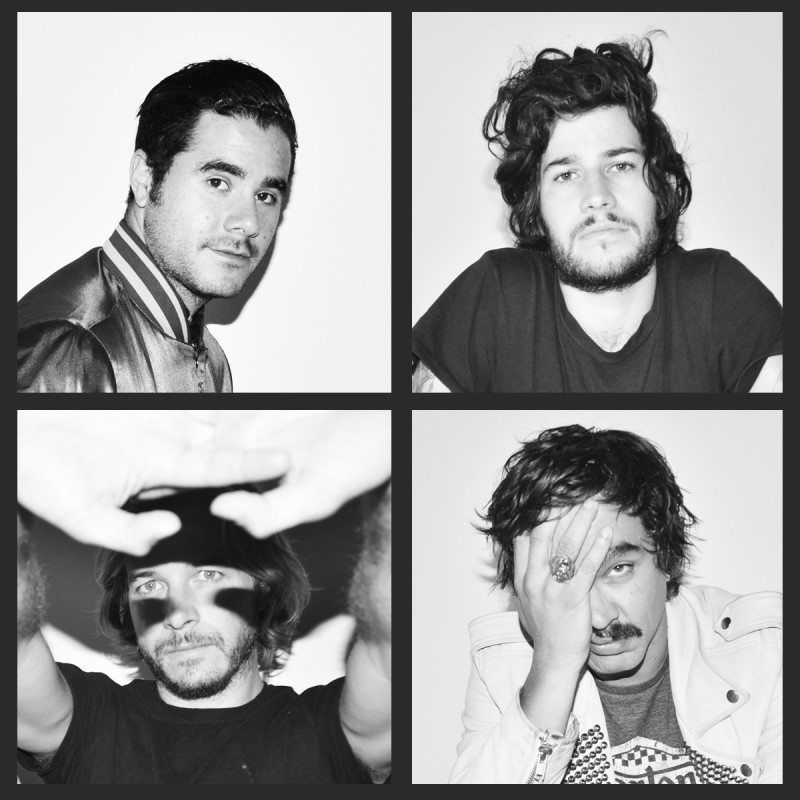
Would you say there are differences between their audiences?
Totally. New York has seen bands play for so many years, and birthed so many bands. One of my favorite bands is the Ramones, and they are NYC. You can’t think of them and not think of the city. Everyone knows they’re from Queens, and there’s also just a lot of history with CBGB and St. Marks and everything. Mexico also has some history with music – not as epic as in New York – but the crowds here are very energetic. When bands play here, people go wild: they jump and sing and are just very passionate. They give everything they have to the band – it’s like watching a soccer game. In New York, people are used to seeing bands all the time, like, oh that’s David Bowie playing, that’s cool. Not in a bad way or anything – it’s just how things are. But when you get people to really like you in New York, you can’t help but feel especially proud of what you’re doing.
Tell us about the first time you met Julian Casablancas and how you guys eventually signed with his label, Cult Records.
We did a lot of tours before we signed with Cult Records. The record that’s coming out now was recorded four years ago, so we toured that album, waiting for somebody to sign us, as bands usually do. It was very painful because it was winter and we are warm-blooded animals, being from Mexico City and all [laughs], so we were having a really bad time. There was never more than ten people at the shows, but we didn’t care because we realized that playing music was what we really wanted to do – no matter what.
Eventually, we played Mercury Lounge, and a good friend of ours came up to us after the show and said, “Hey, Julian Casalbancas really likes your band.” But after such a long stretch of touring and not having the best crowds, I was depressed and said, “Yeah, whatever. Don’t mess with me man.” A month after that, though, he sent me an email, copying Julian, saying he would like to meet in New York. Again, I didn’t believe the story, so I actually didn’t answer until Julian personally wrote me saying he was for real. Then it was oh shit, it’s actually happening. So I went to New York and we talked about the band and played soccer in Chinatown. Afterwards he said he’d like to sign the band, and that was it.
How do you feel having lived with these songs for so long and are just now getting a big tour for the album?
There was a point where I didn’t want to hear them anymore. It’s frustrating because you give so much of yourself to the songs. It’s kind of painful. But eventually I just realized you have to surrender your albums, and not do them anymore, for mental health. But then it got remixed by Shawn Everett, a good friend of ours, and when he gave us the album back, there was life in it again. It was the sound we were expecting to get when we first recorded it, and I was happy to hear it again.
You have a North American summer tour lined up with the Rentals. What are you guys most excited for during that string of shows? What’s in store for the fall?
That we finally have an album to promote in a big way, and that we can close this chapter. And just having the chance to play with the Rentals! After that, we’re probably going to tour in the US, and then maybe Europe after that. And we’ve already started recording the new album. Good stuff is on the way.
Pre-order your copy of The Future Sugar here.
Interview by Justin Davis. Cast him in your next film @yeahjustindavis.



